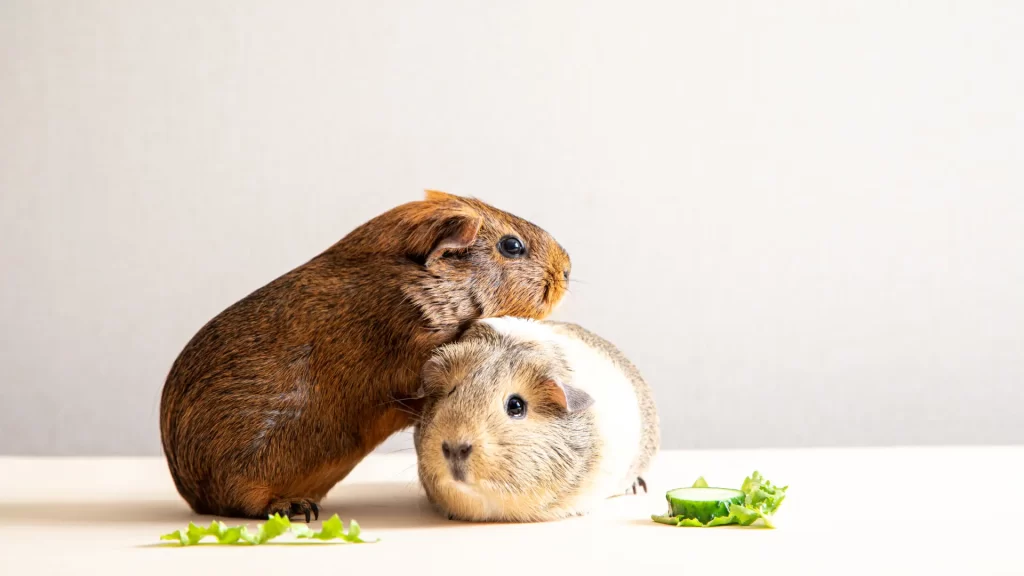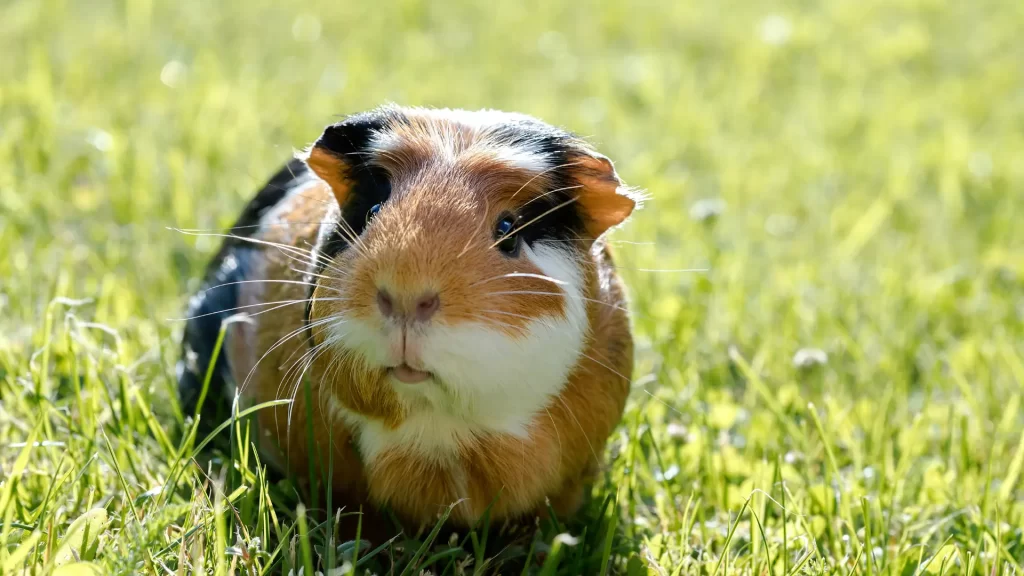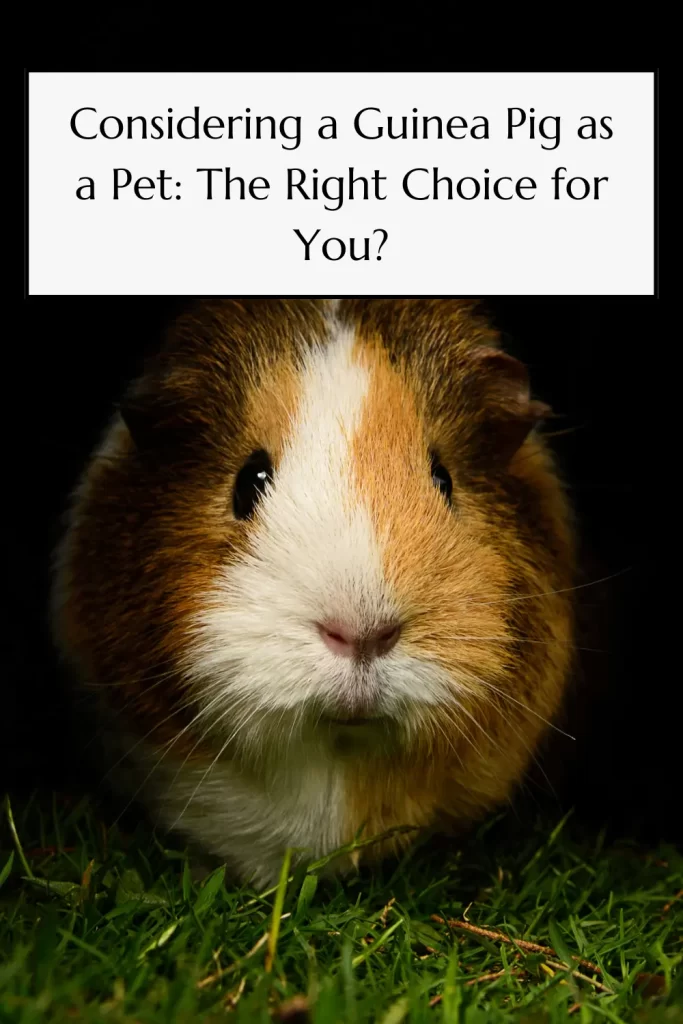
Considering a pet is an exciting and significant decision, and guinea pigs are undoubtedly adorable and lovable creatures. On our homepage, we’ve already highlighted all the fun reasons why guinea pigs make fantastic pets, from their charming personalities to their social nature and gentle demeanor. However, just like with any pet, it’s essential to approach the decision with careful consideration and to be aware of the potential challenges that come with guinea pig ownership. In this guide, we’ll delve into some of the reasons not to get a guinea pig and why they may not be the best fit for everyone, providing you with a well-rounded perspective to help you make an informed decision.
As much as guinea pigs can bring joy and companionship into our lives, it’s essential to approach pet ownership with a clear understanding of the potential challenges and responsibilities involved. While many people find guinea pigs to be delightful and affectionate pets, they may not be the best fit for everyone due to various factors to consider. Before making the decision to welcome a guinea pig into your home, it’s essential to take a thoughtful and introspective look at your lifestyle, living situation, and ability to meet the needs of these charming creatures. By doing so, you can ensure that you make the best choice for both you and your potential guinea pig companion. In the following sections, we will explore the key reasons why guinea pigs might not be the ideal pet for some individuals and what important considerations to keep in mind before making this commitment.

1. Time Commitment
Guinea pigs are social animals that require regular interaction and companionship. They enjoy spending time with their owners and thrive when they have playtime outside their cage. If you have a busy lifestyle or are away from home for extended periods, you might find it challenging to meet the social needs of a guinea pig. Neglecting their need for interaction and mental stimulation can lead to boredom and loneliness, affecting their overall well-being.
2. Space Requirements
Guinea pigs need ample space to move around, explore, and exercise. Keeping them in a small and cramped cage can lead to health issues and behavioral problems. Before getting a guinea pig, you should consider if you have enough room in your home for a suitable habitat. Guinea pigs thrive in spacious enclosures with plenty of room to run and play. If you live in a small apartment or have limited space available, it might be challenging to provide the ideal living environment for a guinea pig.
3. Allergies
It’s essential to be mindful of potential allergies before bringing a guinea pig into your home. Guinea pigs, like all pets, produce dander and shed fur, which can trigger allergies in some individuals. If you or a family member has a history of pet allergies, it’s crucial to spend time around guinea pigs beforehand to see if any allergic reactions occur. Adopting a pet that causes allergies can lead to discomfort and health issues for both you and the pet.
4. Lifespan
Guinea pigs have a relatively long lifespan compared to other small pets. On average, they can live between 5 to 7 years, with some even reaching 8 years or more with proper care. While their longevity can be a positive aspect for committed pet owners, it’s essential to consider the long-term commitment required to care for a guinea pig throughout its life. Adopting a guinea pig is a significant responsibility that extends for several years.
5. Veterinary Care
Guinea pigs, like all pets, require regular veterinary check-ups and care to ensure their health and well-being. Veterinary expenses can add up over time, especially if your guinea pig develops any health issues or requires specialized care. Before adopting a guinea pig, consider if you have the financial means to provide for their veterinary needs.

6. Odor and Cleaning
Guinea pigs are generally clean animals, but they do produce waste that requires regular cleaning. Their living area needs to be kept clean to prevent odors and maintain hygiene. If you’re sensitive to pet odors or find cleaning to be a chore, a guinea pig might not be the best choice for you. Ensuring a clean and odor-free environment is essential for the health and happiness of your pet.
7. Handling and Temperament
While guinea pigs are usually docile and friendly, their temperaments can vary from one individual to another. Some guinea pigs may not enjoy constant handling or might be shy around new people. If you’re looking for a highly interactive and hands-on pet, a guinea pig’s temperament may not align with your expectations.
8. Roommate Compatibility
If you have other pets at home, such as cats or dogs, it’s essential to consider their compatibility with guinea pigs. Some dogs or cats may see guinea pigs as prey, and their presence can be stressful for the small rodents. It’s crucial to ensure a safe environment for your guinea pig and provide them with a space where they can feel secure.
9. Noise Sensitivity
Guinea pigs are not particularly loud pets, but they do make vocalizations, such as squeaks and purrs, especially when excited or communicating with other guinea pigs. If you’re sensitive to noise or live in a noise-restricted environment, the sounds of guinea pigs might be a concern.
10. Emotional Commitment
As with any pet, guinea pigs deserve love, care, and attention. They form bonds with their owners and thrive on affection and companionship. Before adopting a guinea pig, consider the emotional commitment required to ensure their happiness and well-being throughout their lives.
In conclusion, while guinea pigs undeniably make delightful and charming pets for many people, it is essential to recognize that they may not be the perfect fit for everyone. Choosing to bring a guinea pig into your life should involve thoughtful consideration of various factors to ensure the best possible outcome for both you and the adorable pet you’re considering.

Things To Consider
One of the primary aspects to ponder is the amount of time and attention you can dedicate to a guinea pig. These social and intelligent animals thrive on regular interaction and mental stimulation. If you have a busy schedule or limited availability for bonding, a guinea pig may not receive the companionship it requires to lead a fulfilling life. It is crucial to understand that guinea pigs are not solitary creatures; they need interaction and socialization to flourish.
In addition to spending quality time with your pet, providing proper care for guinea pigs involves meeting their specialized dietary needs, maintaining a clean and spacious habitat, and ensuring regular health checks. These requirements demand commitment and responsibility to ensure your guinea pig lives a happy and healthy life. Neglecting any of these aspects may result in an unhappy and unhealthy pet.
Another factor to consider is allergies. While guinea pigs are generally considered hypoallergenic, some individuals may still experience reactions to their fur or dander. It’s essential to assess any allergies in your household before bringing a guinea pig home, as a pet should never be a source of discomfort or health issues for anyone in the family.
The living space available in your home is another significant consideration. Guinea pigs need ample room to explore, exercise, and express their natural behaviors. If you have limited space, it may be challenging to provide them with the environment they need to thrive, potentially leading to a less enjoyable experience for both you and your pet.
Educating yourself about guinea pig behavior and health is crucial for responsible pet ownership. Understanding their communication and being able to recognize any signs of distress or illness is vital to provide them with the best care possible. Learning about their needs and preferences will enable you to create an enriching environment that promotes their well-being.
If you have young children or other pets, their compatibility with a guinea pig should also be evaluated. Guinea pigs are sensitive to noise and sudden movements, so a calm and gentle environment is necessary for their overall well-being.
Conclusion
Ultimately, the decision to bring a guinea pig into your home is a personal one. By thoroughly considering all aspects, you can determine if you are ready to commit to the responsibilities of guinea pig ownership and provide them with a loving and supportive forever home.
For those who are well-prepared and willing to invest time, effort, and love into caring for these endearing pets, the rewards will be immeasurable. The loving companionship of a guinea pig can bring joy, laughter, and a sense of fulfillment that enriches your life in ways you never imagined.
Whether you decide that a guinea pig is the perfect fit for you or not, remember that being a responsible pet owner involves making informed decisions and being prepared for the journey ahead. If guinea pigs aren’t your thing, maybe give hamsters a thought! We’ve actually done a little showdown between hamsters and guinea pigs in our post. May your pet-owning experience be filled with warmth, love, and the joy of sharing your life with a furry friend.


